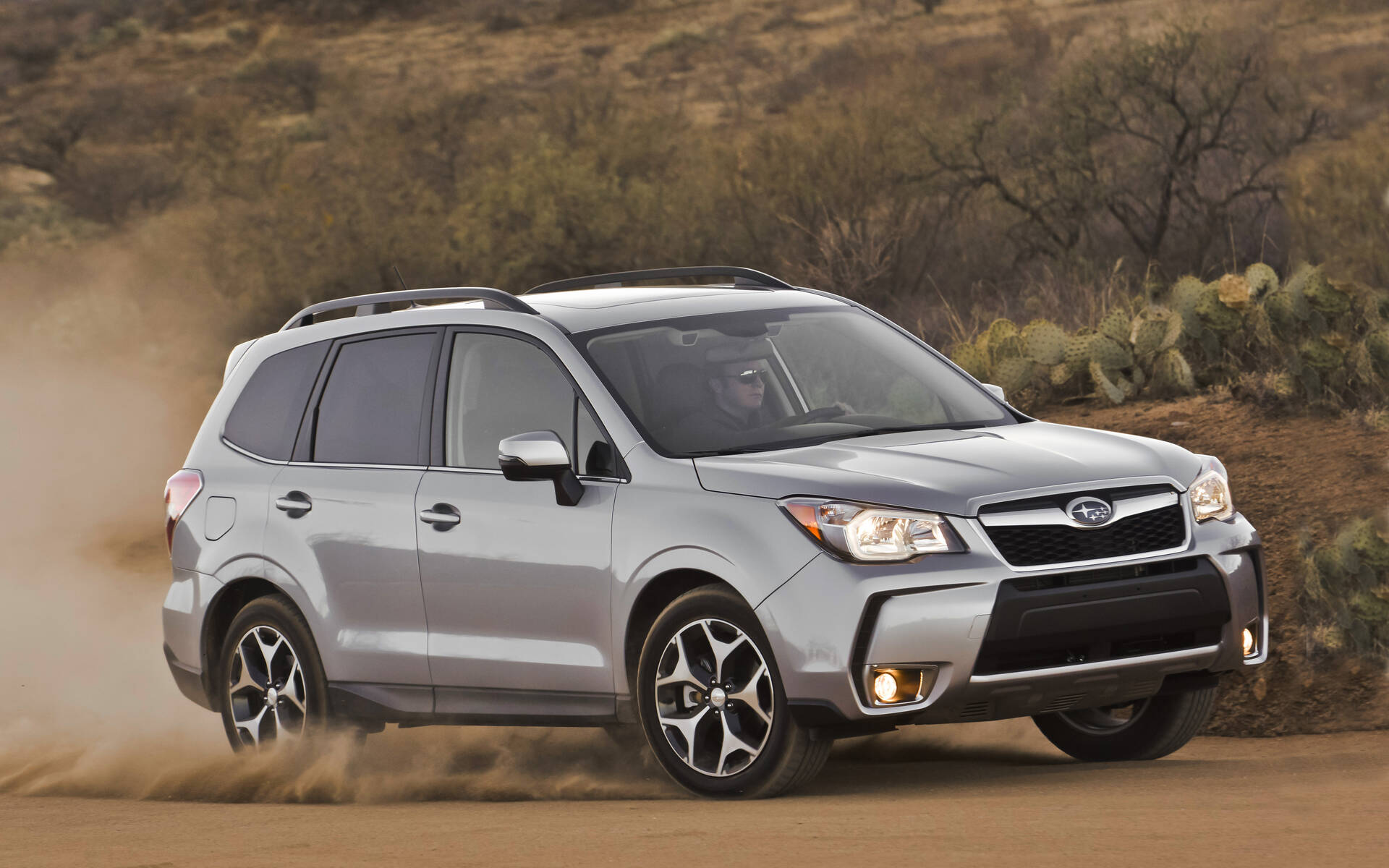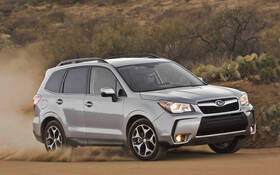2014-2018 Subaru Forester: What Should You Know Before You Buy?
The current Subaru Forester was introduced for model year 2019 with only one engine/transmission option, and still no hybrid version in a segment where there are more and more of them. However, it remains a versatile vehicle that offers a solid value, new or used.
Considering an older and cheaper model? Interested in a turbocharged engine? Here are the main things you must know about the 2014-2018 Subaru Forester.
With a modernised look that’s closer to its successor than its predecessors, the fourth-generation Forester features an interior that offers more space and a better design. Its trunk can carry 974 litres of luggage and equipment of all sorts, and expands up to 2,115 litres with the back seat folded. That's huge for a compact SUV!

Under the Hood
While it kept its six-speed manual gearbox (which we don’t necessarily recommend), this Forester has also benefited from a reprogrammed continuously variable transmission that promotes better fuel economy. We’re talking about 8,5 L/100 km on average with the modest 2.5-litre naturally aspirated engine producing 170 horsepower, or 9,5 L/100 km with the 2-litre turbocharged mill that generates 250 horsepower. In comparison, the base engine, when paired with the manual transmission, consumes up to 9,7 L/100 km!
But keep in mind that the former Forester’s turbo engine requires premium fuel, you must give more attention to its maintenance, and there’s no increase in towing capacity, which remains at 1,500 pounds. In addition, the 2.0XT models that are powered by it come with a modified suspension that produces a rather stiff ride, and a slightly smaller cargo volume (from 892 to 1,940 litres depending on the back seat position).

Numerous Recalls
And that’s not all: among the six recalls issued for the 2014-2018 Forester, one was about the turbocharger’s air inlet hose, which can crack. This is a manufacturing defect caused by using the wrong material and some dealers have replaced the hose in question. Note that this problem only affects the 2015 and 2016 Foresters 2.0XT.
For model year 2017, the vehicle received a few aesthetic touch-ups in the front and rear, and the turbo engine gained a brake-based torque vectoring system. The result? A slightly safer and more responsive handling on curvy or slippery roads.

On the other hand, the Forester has been criticized for its steering that is sluggish and imprecise in the centre. But it’s a solid and safe vehicle overall, especially when fitted with the EyeSight driver assist, which can help you avoid collisions.
Happy shopping!












